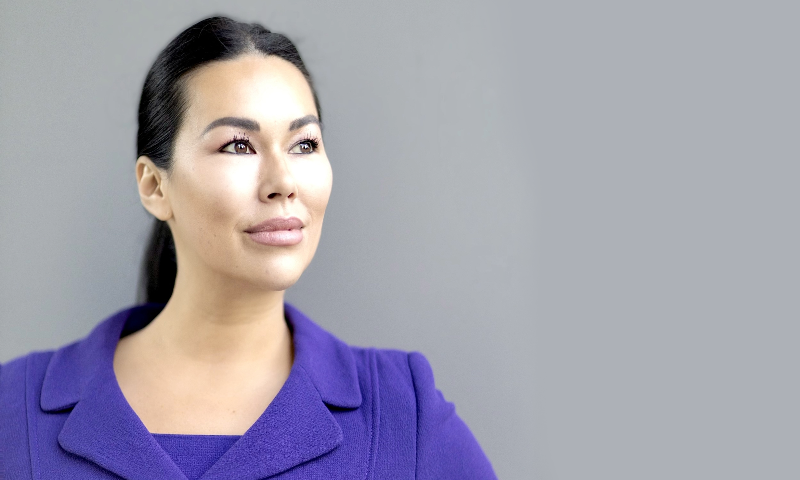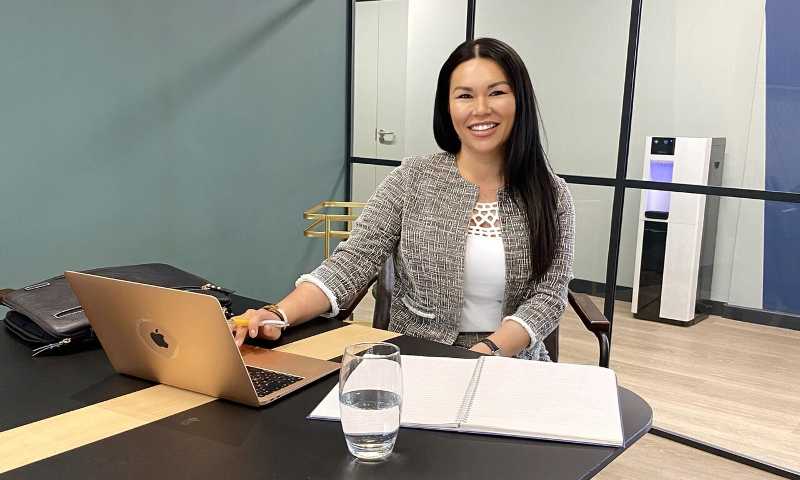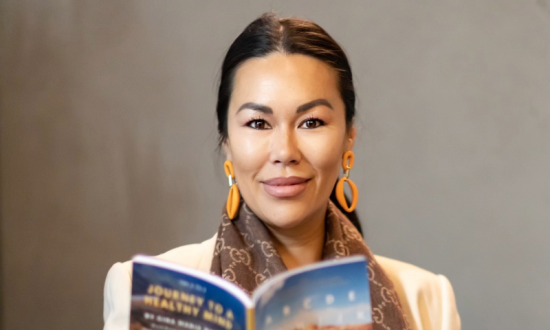Gina is the Founder and Corporate Transformation Expert at YOUR PEOPLE POWER, delivering motivation, inspiration, and transformation to improve the performance of world-leading international corporations. This highly acclaimed 2x TEDx Global Speaker is a Neuroscience (Harvard) enthusiast and Emotional Intelligence (EQ) (Berkeley, University of California) advocate who combines her studies and 20 years of experience to help organisations achieve exceptional results working within dynamic, extreme-pressure environments.
Gina became a Meditation and Mindfulness Champion with over a decade of education and practical application to balance working in highly pressured delivery environments. Her published wellbeing books and self-development journals are available globally.
Recently, in an exclusive interview with Digital First Magazine, Gina shared her professional trajectory, what sets YOUR PEOPLE POWER apart from other market competitors, personal sources of inspiration, significant career milestones, future plans, words of wisdom, and much more. The following excerpts are taken from the interview.
Gina, could you please share your journey to becoming an expert in your current position?
My professional journey has spanned over two decades, navigating high-pressure corporate landscapes for major global players. Through the highs and lows (and there have been many), I’ve accumulated valuable experience and honed my skills, emerging as an expert in corporate performance and transformation. My career experience, coupled with the professional studies I have undertaken at Universities such as Harvard, Cambridge, and Berkeley, has equipped me with the tools and knowledge to do what I love today: educating and motivating our leading global organisations and institutions on performance and transformation. In life, if you follow your passion and continuously push yourself to learn, develop, and master yourself, you can’t go wrong, and that’s what I have done; that’s the journey I am on.

Tell us about the mission and vision of YOUR PEOPLE POWER? What sets it apart from other market competitors?
YOUR PEOPLE POWER stems from a personal journey of overcoming severe burnout after leading highly complex transformative projects and programmes for one of our Leading Banks. Recognising a major global issue of work-related stress, depression, and anxiety that costs businesses $1 trillion per year, I founded YPP with a mission. First and foremost, I wanted to help make lasting change for the people suffering at work as I did. Secondly, we aim to teach organisations how to embed long-term cultural change in the workplace and performance space through our science-backed studies. There is a healthier way to improve productivity and performance, and this is done by understanding the core mechanics of the brain and how we can speed up our mental processing power (BPU) whilst reducing fear of our people (which can lead to pushbacks in change and slow transformation). It all starts with three main areas of the brain – The Prefrontal Cortex, The Amygdala, and The Hippocampus. Our programmes focus on speeding up the processing power in the Pre-Frontal Cortex, reducing fear in the Amygdala, and increasing memory capacity in the Hippocampus. Do this, and your people are more effective and agile to change – that’s how we differ; we get to the core of the issue and re-program it at the root.
You are a Meditation and Mindfulness Champion with over a decade of education and practical application to balance working in highly pressured delivery environments. What guidance would you give professionals who find meditation and mindfulness difficult?
Meditation is a practice akin to honing any skill. Many people give up early, citing a ‘busy mind’ and thinking they cannot switch off or ‘not doing it right’, but it’s analogous to starting at the gym. Recognising thoughts during meditation is a positive step—the ‘mental rep’ enhances awareness and improves the ability to master control over one’s thoughts. So, next time you try to meditate but get frustrated as thoughts come in, remind yourself you are doing it right by the simple fact that you have recognised the thought, then let it go. With practice, the thoughts will become less over time, and the mind quieter. My final advice is to find the practice that works for you – if you find meditation too challenging, then try a mindfulness practice, such as mindful walking, swimming, or even mindful eating (yes, that is a real thing).

Can you please shed light on your 4 P’s Method and Power Skills Programme? What led you to develop this programme?
Distinguishing between the Power Skills Programme and the 4P’s programme is vital. Power Skills focuses on personal development—think of it as a supercharged version of soft skills required to thrive in today’s working world, such as Emotional Intelligence, Personal Resilience, Agility, and Mental Wellness. On the other hand, the 4P’s programme addresses organisational change for sustained productivity and profitability through initiatives that bring people positivity and peace.
From your point of view as a 2x TEDx Speaker, what makes a TEDx talk so special?
The magic of a TEDx Talk lies in the convergence of the person, unique knowledge sharing, and a compelling story that connects with the audience. The collective thirst for knowledge creates an energising atmosphere that sets TEDx apart from other events.
Who has influenced you the most in life and why?
Pinpointing a single influential figure is challenging, as my inspiration comes from diverse sources throughout my lifetime—parents, mentors, peers, spiritual teachers, motivational speakers, films, and experiences. Beyond people and experiences, nature’s resilience—the shedding leaves by a tree, a caterpillar’s transformation, or the eb and flow of the ocean —profoundly influences my perspectives and motivations to continue growing, transforming, and mastering self.

The meaning of leadership can change from one era to the other, how would you define the meaning of leadership today?
Today’s leadership demands a multifaceted approach with a focus on people at the forefront, necessitating adaptability, inclusivity, and a commitment to support people through challenges by expressing empathy. Leaders must navigate change with agility, champion diversity for innovation, and embody transparency and integrity to inspire their teams. Finally, we are in a growing era of a generation gap. Leaders must find ways to connect with people of all generations in their teams if they wish to become better at work.
What do you feel has been your ‘career-defining’ moment?
I have so many, here are a few –
Becoming the youngest person at my level at the age of 28 to run the largest managed service B2B contract, valued at £435m, offshoring 200 roles to India, with 250 staff onshore.
Overcoming my imposter syndrome by being levelled as outstanding on multiple occasions against my peers for exceptional delivery on the Fast Track Leadership Programme.
Delivering one of the most complex IT Transformation Programmes of our time for a leading Bank.
Delivering two TEDx Talks. Experiencing extreme burnout, which resulted in a breakdown and coming back from it.
Motivating and educating organisations such as The Ministry of Defence, The British Army, HSBC, and Microsoft to name a few through the work we deliver at Your People Power.

Tell us about your future plans. Where do you see yourself in the next five years?
That’s between myself and God for now, so watch this space. I can promise a dynamic mix of change, growth, and transformation in the upcoming years – my journey of self-discovery continues.
One piece of advice that you would like to give to our readers on practicing mindfulness.
Find the time – just 10 minutes a day is all you need. If you can do more, great, but no less than 10mins. If you can’t find that time, there is something out of balance in your life. It happened to me and resulted in burnout. We need time to rest and reset. It’s okay and necessary to prioritise yourself.






